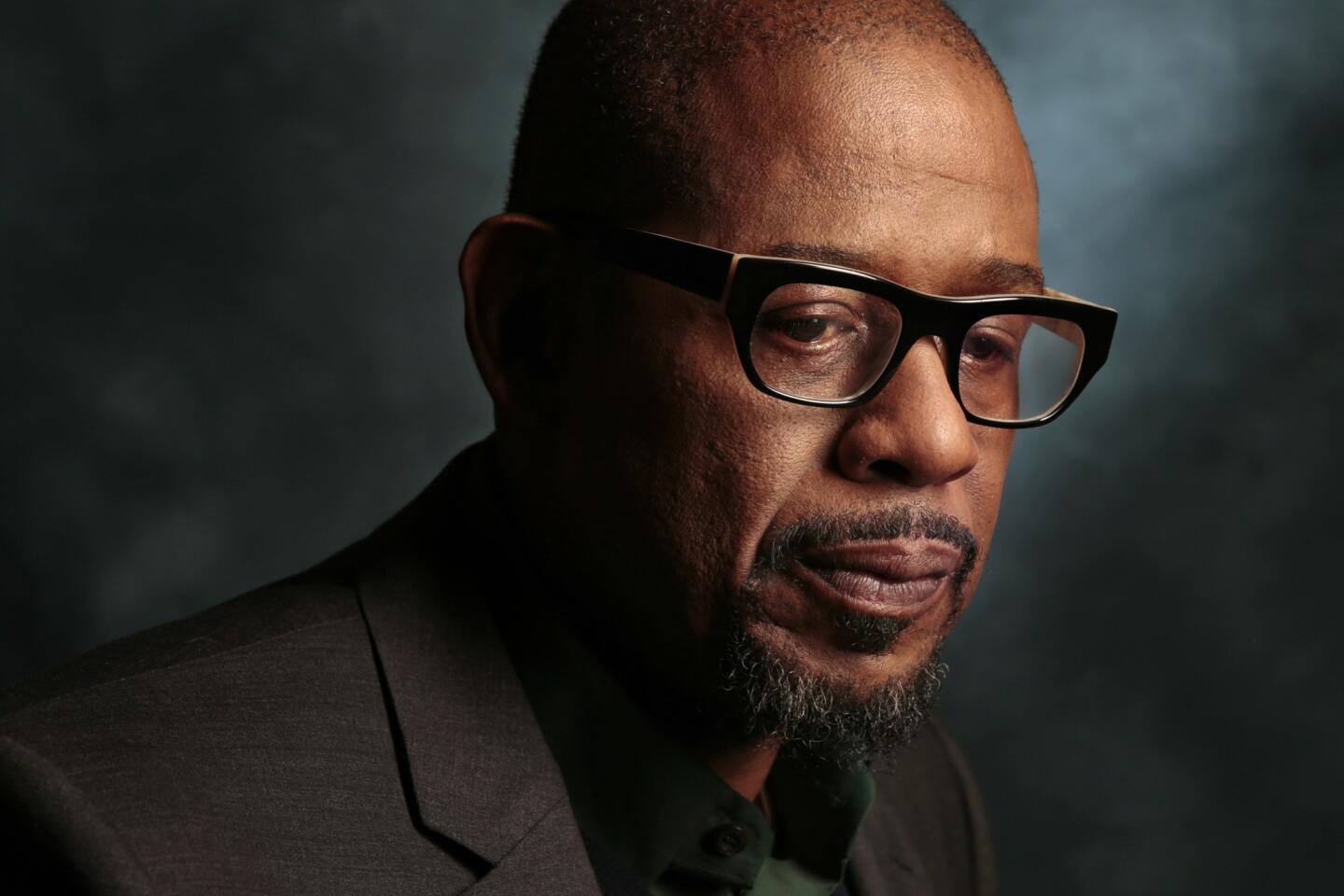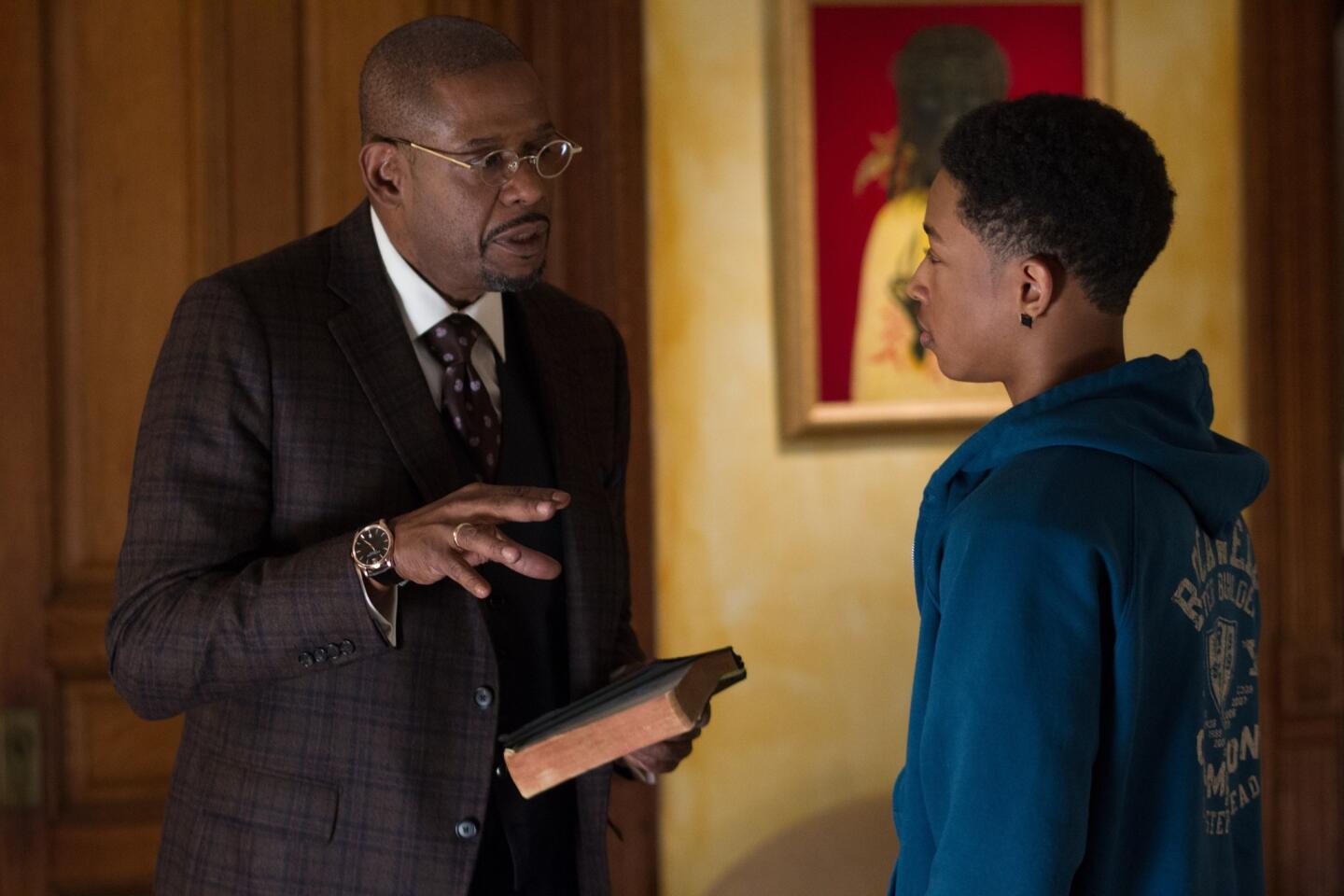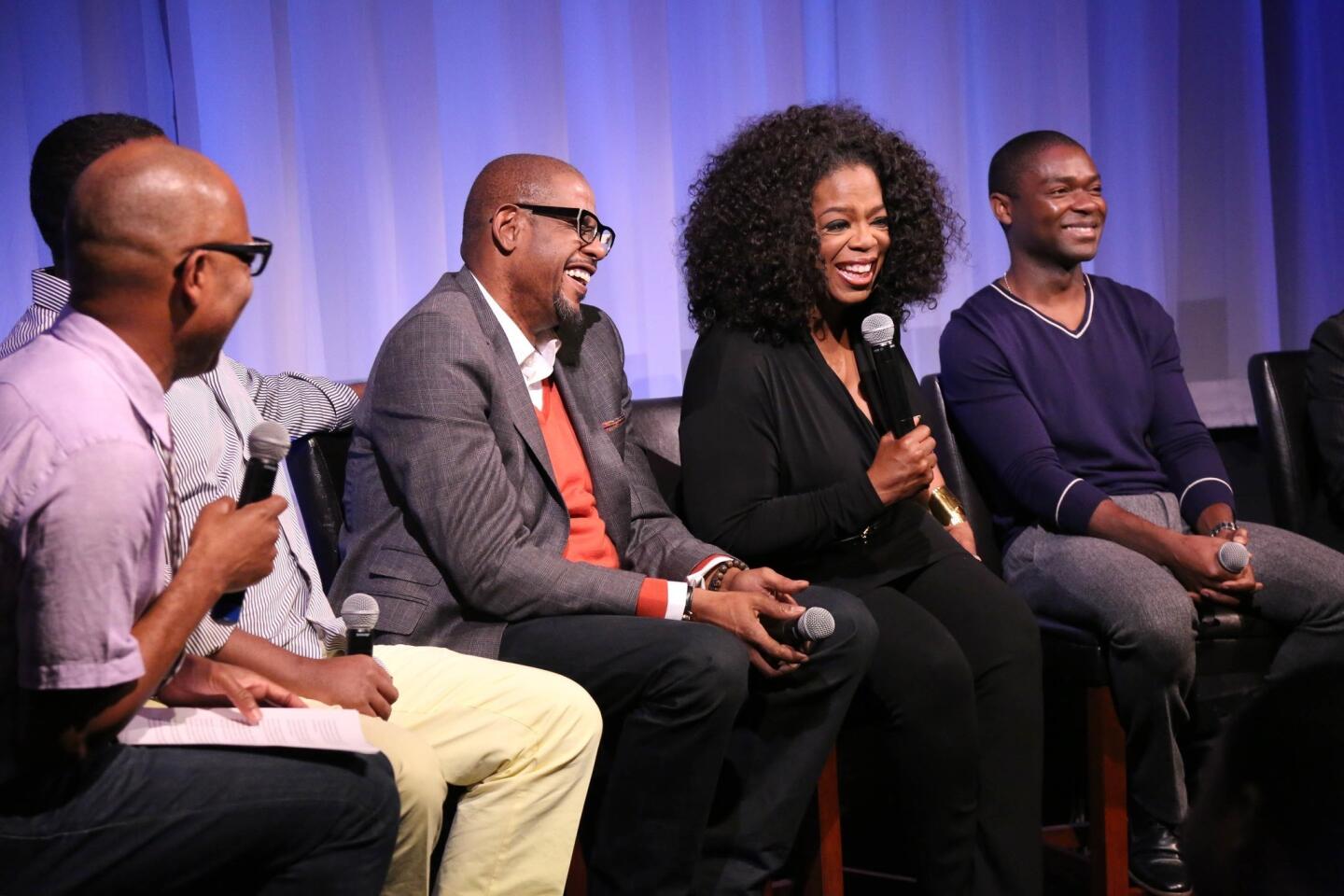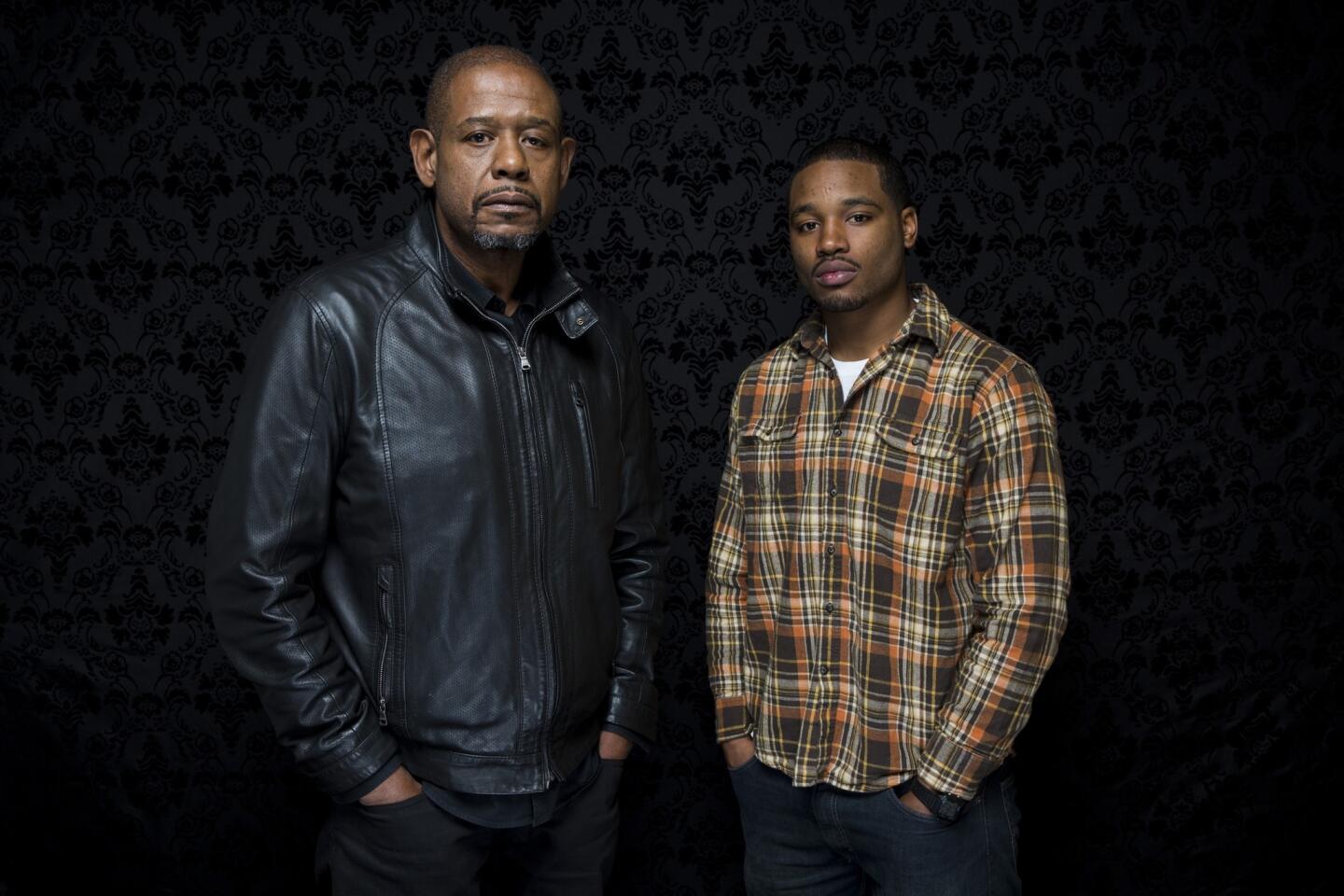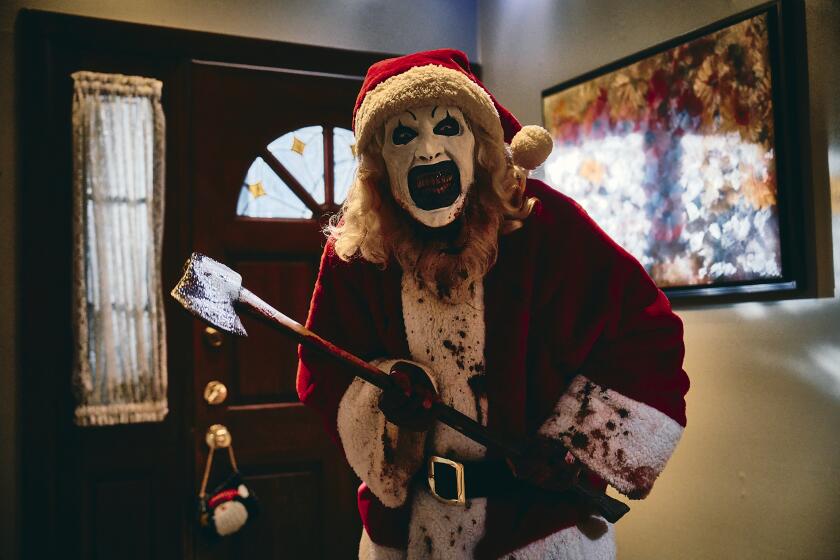Forest Whitaker’s twin peaks this year: ‘Fruitvale Station’ and ‘The Butler’
If Forest Whitaker isn’t careful, he could win Oscars in two categories for two movies: lead actor for “Lee Daniels’ The Butler” and as producer of the conceivable best picture, “Fruitvale Station.”
No actor-producer has ever even been nominated for such a twofer, but don’t bother asking Whitaker about it. He works on so many movies in so many different capacities — actor, producer, director, writer — that this year’s triumphs seem less a culmination than a byproduct. Well along too is a documentary about Sen. Cory Booker (D-N.J.). Right behind may be the Louis Armstrong script Whitaker’s written, one that everybody except him thinks he’s finally ready to star in and direct.
All his projects bespeak the same commitment to what Whitaker calls “social stories.” “I feel fortunate right now, because I feel like I’ve got the chance to work on projects that align themselves with the way I feel, projects that I’m really proud of.”
Whitaker may be a film publicist’s nightmare because he has so much more going on than any one picture, but he’s also an accountant’s dream, because tabulating all his different charitable contributions and paychecks must keep an accountant busy all year round. He’s also an interviewer’s welcome challenge because he comes across as a good man worth trying to understand, successful at an art he still finds fundamentally mysterious.
“There’s one scene,” he says, about his starring role as a lifelong White House manservant in “The Butler,” “where I don’t know what I was thinking. It bothers me. There’s a scene where I put a teacup on top of a napkin? And I don’t know why. Whenever I watch the movie, I think to myself, ‘Why would you do that?’”
It’s not that Whitaker wishes he hadn’t placed the teacup on the napkin. He just wishes he knew why he put the teacup on the napkin — and, by implication, why putting the teacup on the napkin works so well for the scene.
TIMELINE: The Academy Awards through the years
He studied long hours with an actual White House butler, making and serving oceans of tea before he got the ritual down just right. He also worked closely with the actor playing his character as a teenager, the better to harmonize their performances.
It didn’t hurt that Whitaker has visited the White House more than once. He serves on the president’s Council for the Arts and Humanities, and he spoke at this year’s 50th anniversary of the March on Washington in tribute to his abiding inspiration, the Rev. Martin Luther King Jr. All this experience and research nourished his performance as Cecil Gaines, a part that, for his White House scenes, took him from the Eisenhower administration right up to the inauguration of President Obama.
Whitaker almost eagerly deflects or disavows credit for his success. Yet it’s hard to imagine Ryan Coogler writing and directing “Fruitvale Station” just out of USC film school without at least a little mentoring from his veteran producer, but Whitaker won’t hear of it.
VIDEO: Highlights from the Envelope Screening Series
“Ryan’s an amazing filmmaker,” he says. “I think every once in a while there’s a tear in the universe, where they’re putting someone there for the benefit of mankind. It all arrives at a moment that’s crucial to the human race, and I think he fits in that category.”
Whitaker doesn’t blush to talk in spiritual terms about his or his collaborators’ projects — or, for that matter, to inquire with earnest curiosity about the projects of an interlocutor he’s only just met. He grew up in working-class Carson, where his mom, a teacher, got him out of trouble by sending him across town to Pacific Palisades High. Whitaker makes a point of passing his luck on, not just to younger filmmakers like Coogler but also through the growing social-service foundations he’s midwifed in Uganda, SouthSudan, Mexico and elsewhere.
As for the coming Oscar-tide steeplechase, twist his arm and he’ll admit that, if he could win an award for only one of his several successes, it might, only just, be “Fruitvale Station”: “I love ‘The Butler,’ but …”
Then ask him which of the two films he’d show MLK tonight if he could, and the answer comes back searching and thoughtful:
“I think I would probably show him ‘The Butler’ — and talk to him about ‘Fruitvale Station.’ ‘The Butler’ to catch up on the progression of the movement, so he could see where we are. And ‘Fruitvale Station’ because the dialogue around ‘Fruitvale’ is so important to the next movement of this country.”
One definition of fulfilling work is making something that you would show to the person you most admire. Forest Whitaker has done it twice in one year.
More to Read
Only good movies
Get the Indie Focus newsletter, Mark Olsen's weekly guide to the world of cinema.
You may occasionally receive promotional content from the Los Angeles Times.
